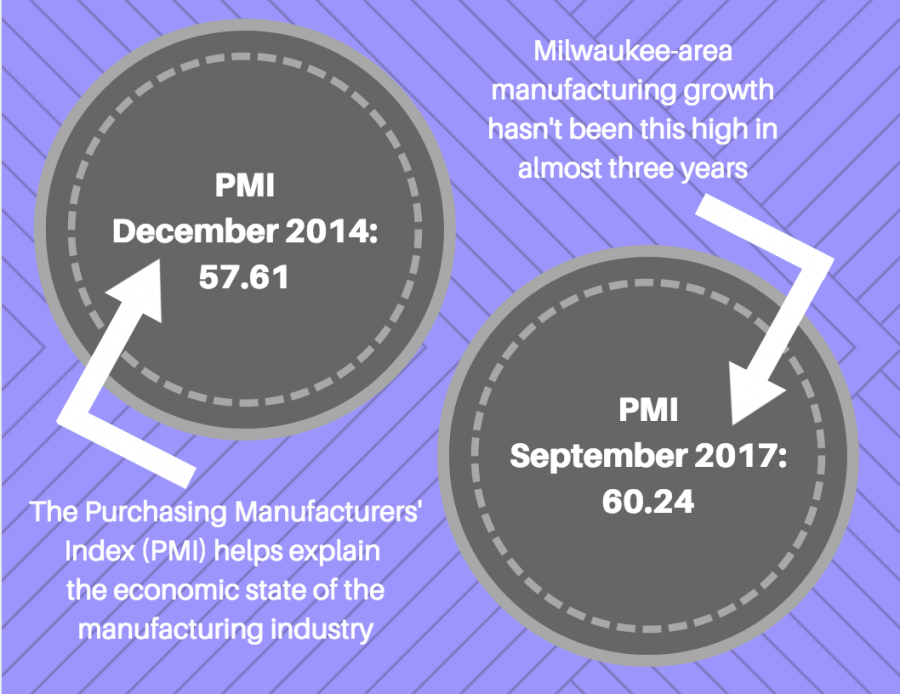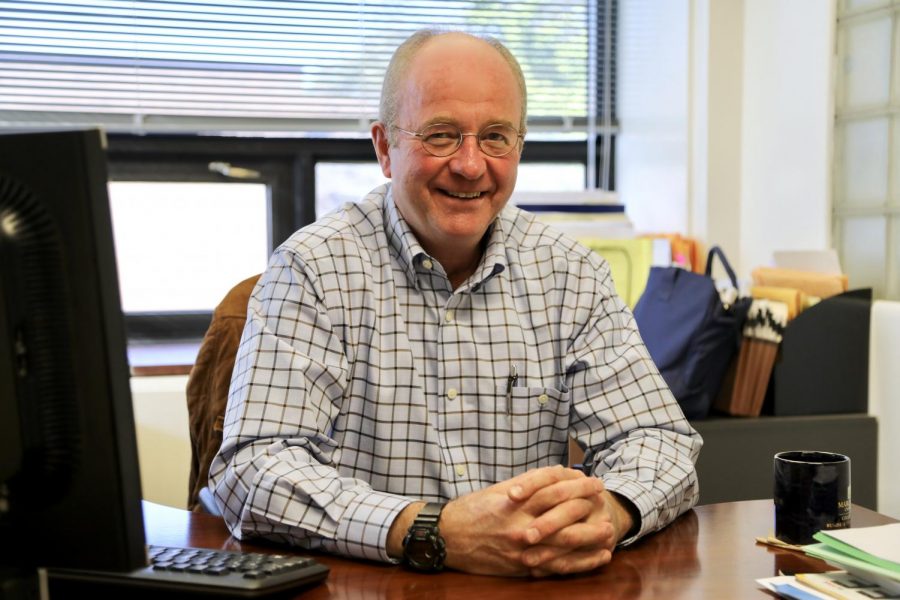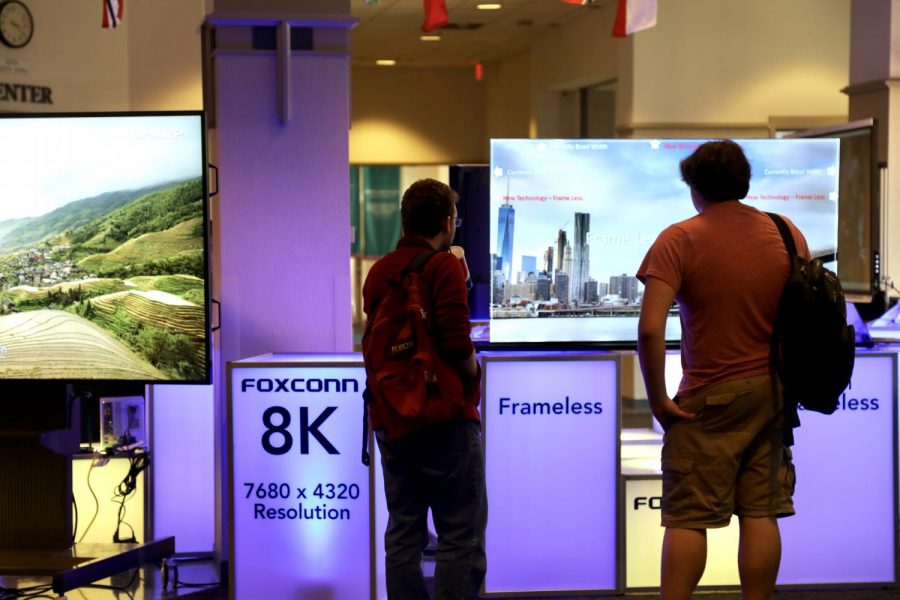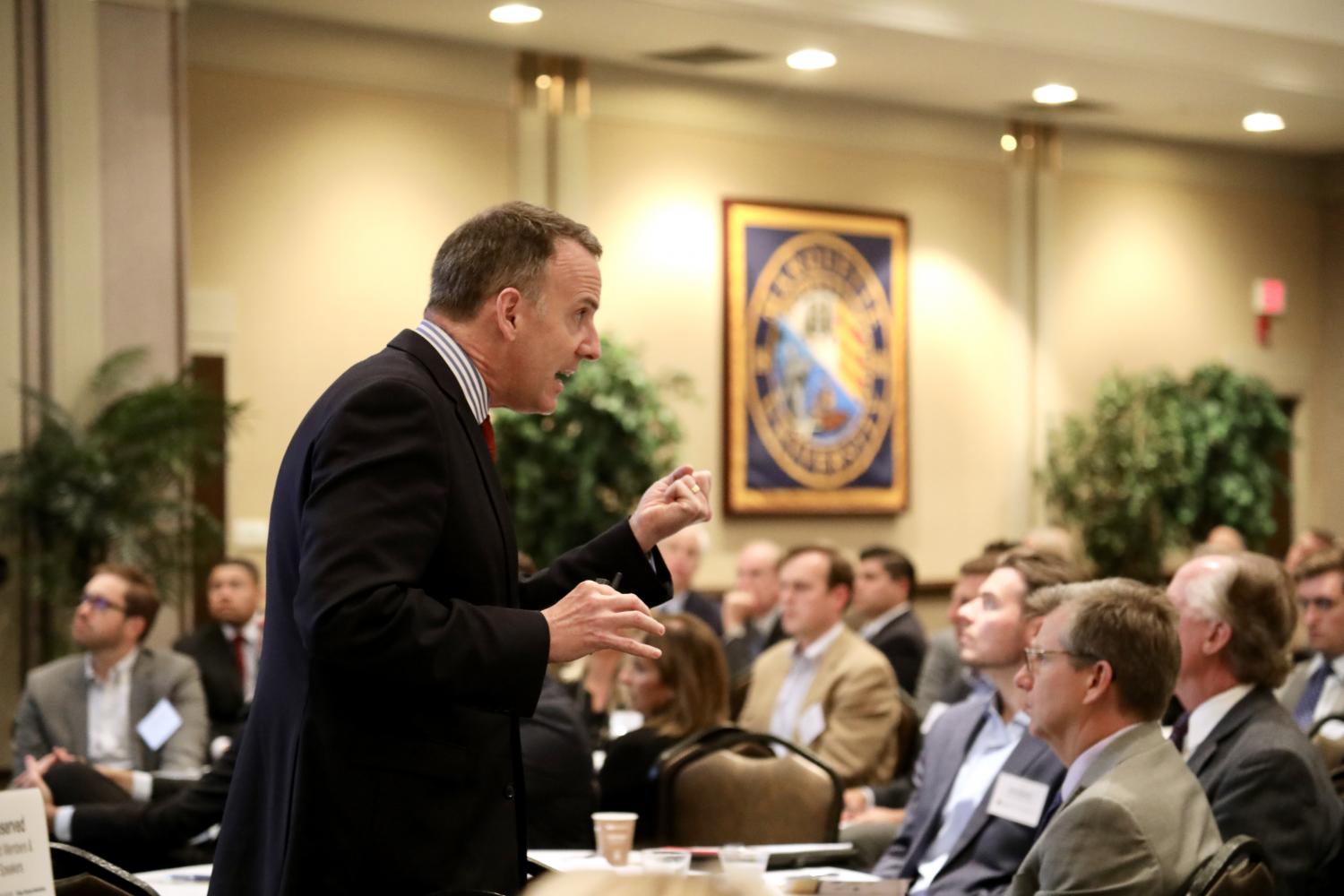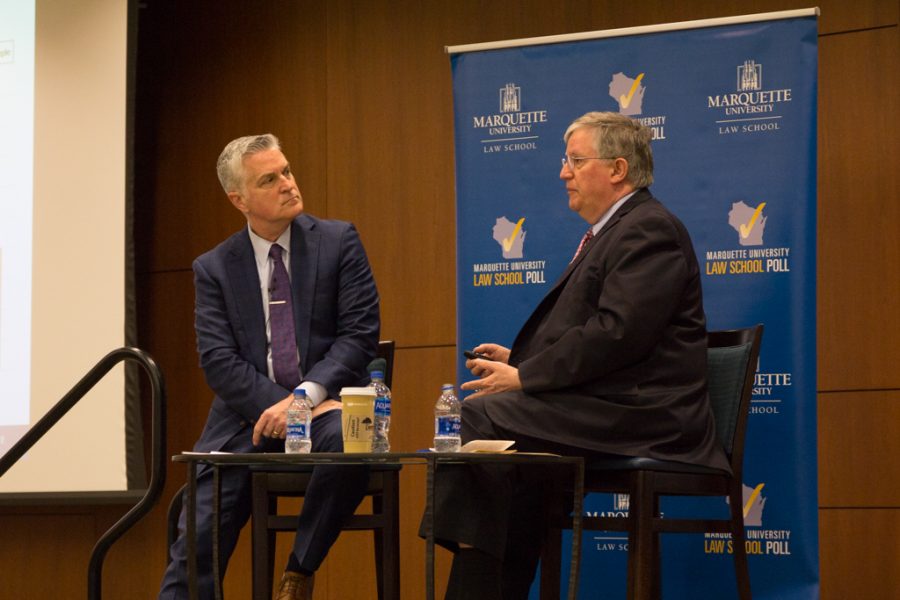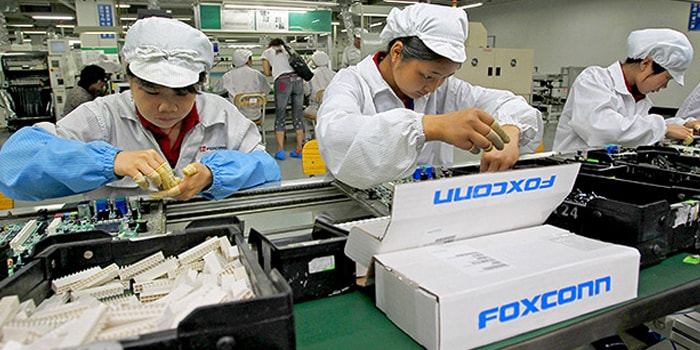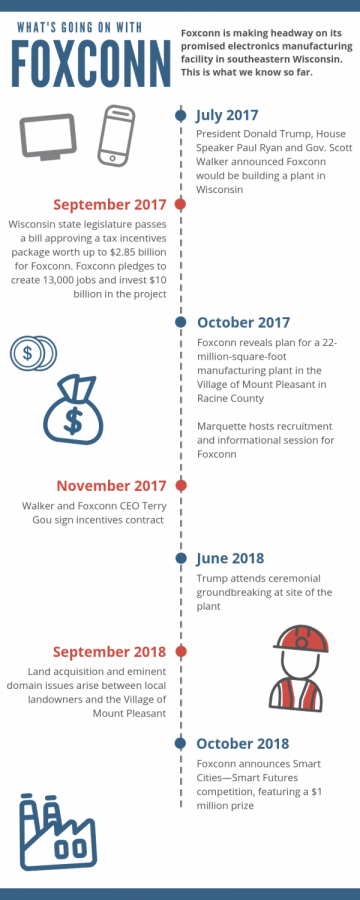Milwaukee’s manufacturing industry is at its highest growth in almost three years, according to a recent report by the Center for Supply Chain Management.
The report, known as the Marquette Institute for Supply Management report on Manufacturing, is primarily generated by Marquette graduate students. Marquette began doing the report around 2009 or 2010 after the ISM Milwaukee chapter wanted to get rid of it.
Director of the Center for Supply Chain Management Doug Fisher took the lead on overseeing the study.
“I feel it’s good for the students. I feel it’s a value-add for the region,” Fisher said. “We don’t get paid to do it; it’s not a money-maker. It’s just, I think, something that higher education probably should do.”
This year’s manufacturing growth was indicated using the Purchasing Managers’ Index, which is formulated using responses from Milwaukee-area companies. The PMI index asks companies to rate whether conditions are getting better or worse, Fisher said.
Gwen Davis, a graduate student in the School of Management, took on this year’s report. She distributed the survey to over 200 manufacturing businesses in the Milwaukee area, then compiled the data to create the finalized report.
“The PMI index essentially compiles manufacturing data based on new orders, inventory, production, supplier deliveries and employment,” Davis said in an email. “Each metric is weighted and seasonally adjusted so that it can be accurately compared to the previous month’s PMI number.”
Seventy percent private companies and 30 percent public companies were surveyed. He said public companies, such as the New York Stock Exchange, chase earnings guidance: a prediction of a company’s profit or loss in the near future.
“There’s a big difference between public and private,” Fisher said. “So it’s fun to watch that come through.”
An above-50 PMI indicates growth, whereas a below-50 PMI indicates decline. The Milwaukee-area PMI for July and August were 56.98 and 55.41, respectively. For September, the index jumped to 60.24.
“It’s very consistent with the anecdotal evidence I’m hearing from manufacturers. We’re growing, we’re having trouble finding talent, we need a workforce – those are all indicators that they’re very busy,” Fisher said. “When the PMI comes out and it’s above 50 or well above 50 in the positive range, it’s nice to know that’s consistent with what’s going on.”
Recent hurricanes, particularly Hurricane Harvey in Texas, disrupted the Milwaukee-area supply chain, Fisher said. The report cited factors like short-term resin shortages and price increases.
“Lead-times have taken a hit since the hurricanes, since suppliers are struggling to keep up with their orders as weather has affected delivery and availability of resources,” Davis said in an email.
However, with the current numbers, Fisher said the employment environment is looking good for business students.
“We’re now in industry revolution 4.0 – just in the front end of it,” he said. “So students right now have a chance to go out and have quite an impact because the world of business is changing substantially.”
Fisher said the implementation of the new Foxconn plant is going to create yet another industry revolution. It will not only bring its own supply base and talent, but raise expectations for business practices in the area.
“They’ll be exchanging ideas, they’ll be exchanging talent,” Fisher said. “Politics aside, I don’t care what’s going on, but I think it stands a chance of just elevating (the area’s manufacturing industry).”
Jessica Duelm, a sophomore in the College of Business Administration and supply chain management major, said the manufacturing growth makes her more confident in her career prospects.
“I do know it’s a newer industry and it’s been growing a lot these past few years,” Duelm said. She said seeing the information on Foxconn made her feel secure in finding an internship.
The report also included a six-month outlook on business conditions in the area. 35.29 percent expect positive conditions and 17.65 percent expect negative conditions, with the remainder expecting things to remain the same.
“I think things are pretty good right now, so it’d really be hard for me to say, ‘Boy, they’re going to get better,’” Fisher said. “Same is good.”

